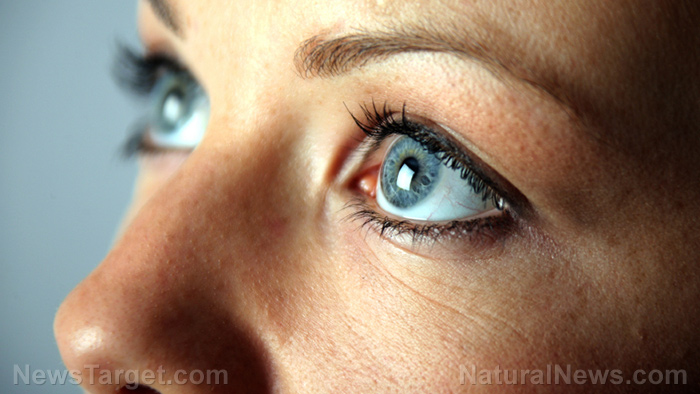
Night blindness – causes, side effects and treatments at NaturalPedia.com
Thursday, May 24, 2018 by Zoey Sky
http://www.naturalpedia.com/night-blindness-causes-side-effects-and-treatments-at-naturalpedia-com.html

Night blindness refers to a condition in which an individual is unable to see well at night or in poor light.
The condition is not a disease, but it is often a symptom of an underlying problem that involves the retina. While myopic patients have some difficulties with night vision, this is caused by optical issues instead of retinal disease.
Night blindness is also called nyctalopia.

Known side effects of night blindness
The side effects of night blindness usually include:
- Difficulty driving at night – This is a common side effect of night blindness. A patient usually has a hard time focusing on what’s ahead of them while on the road because the retina is unable to focus and adjust to dark conditions. Patients with night blindness may also have a hard time focusing when the headlights of passing cars shine in their direction.
- Difficulty seeing in dark rooms – Patients with night blindness can’t see anything in a dark room, and they may require lighting before they can make out anything in the dark.
- Inability to see stars clearly – Another side effect of night blindness is the inability to see stars even when the night sky is clear.
Risk factors for night blindness may include:
- Cataracts – Cataracts refer to calcium deposits in the eye which form a lens that obstructs vision.
- Diabetes – Diabetic patients often have eye problems, and these can eventually cause night blindness.
- Nearsightedness – Nearsighted people find it hard to see objects that are far away. This can worsen at night and cause night blindness.
- Nutritional deficiency – People who don’t have a history of any vision problems may have a nutritional deficiency, such as vitamin A.
- Retinitis pigmentosa – This is a genetic condition caused by dark pigmentation that collects on the retina. Retinitis pigmentosa results in tunnel vision.
Body systems harmed by night blindness
Night blindness may cause the following complications:
- Patients with vision problems may require a prescription for corrective lenses.
- People with diabetes with night blindness may require strict medical supervision to prevent further optical damage. If left untreated, diabetic conditions could lead to complete blindness.
Food items or nutrients that may prevent night blindness
The following foods or nutrients can help prevent night blindness:
Vitamin A helps keep the eyes healthy, and it helps the human body fight infections. Vitamin A is also known as retinol. Sources include:
- Dairy (e.g., cheese, milk, and yogurt)
- Eggs
- Fatty fish
- Liver (Take note that liver is rich in vitamin A, so only consume it once a week to avoid having too much of the vitamin.)
The body can also convert another substance called beta-carotene into vitamin A. Sources include:
- Vegetables ( e.g., carrots, green leafy vegetables, red peppers, and sweet potatoes)
- Orange/yellow-colored fruit (e.g., apricots, mango, and papaya)
Treatments, management plans for night blindness
Only night blindness caused by cataracts, nearsightedness, or vitamin A deficiency can be treated. Corrective lenses, like contacts or eyeglasses, can improve nearsighted vision during day and night.
- Cataracts – Cataracts can be removed via surgery. A surgeon will replace the cloudy lens with a clear, artificial lens.
- Vitamin A deficiency – A healthcare professional can recommend supplements if a patient’s vitamin A levels are low.
Where to learn more
- 10 Problems That Bananas Solve Better Than Pills
- 12 Foods for Boosting your Eye Health
- Important Facts About Vitamin A That You Need To Know
- What Happens To Your Body When You Consume Watermelon Regularly
- What Happens to Your Body When You Eat 3-4 Dates Daily?
Summary
Night blindness refers to a condition in which an individual is unable to see well at night or in poor light.
The side effects of night blindness usually include difficulty driving at night, difficulty seeing in dark rooms, and inability to see stars.
Night blindness may cause complications like blindness. People with diabetes with night blindness may require strict medical supervision to prevent further optical damage. If left untreated, diabetic conditions could lead to complete blindness.
Foods rich in vitamin A and beta-carotene can help prevent night blindness.
Only night blindness caused by cataracts, nearsightedness, or vitamin A deficiency can be treated. Corrective lenses, like contacts or eyeglasses, can improve nearsighted vision during day and night.
Sources include
Tagged Under: Tags: night blindness





